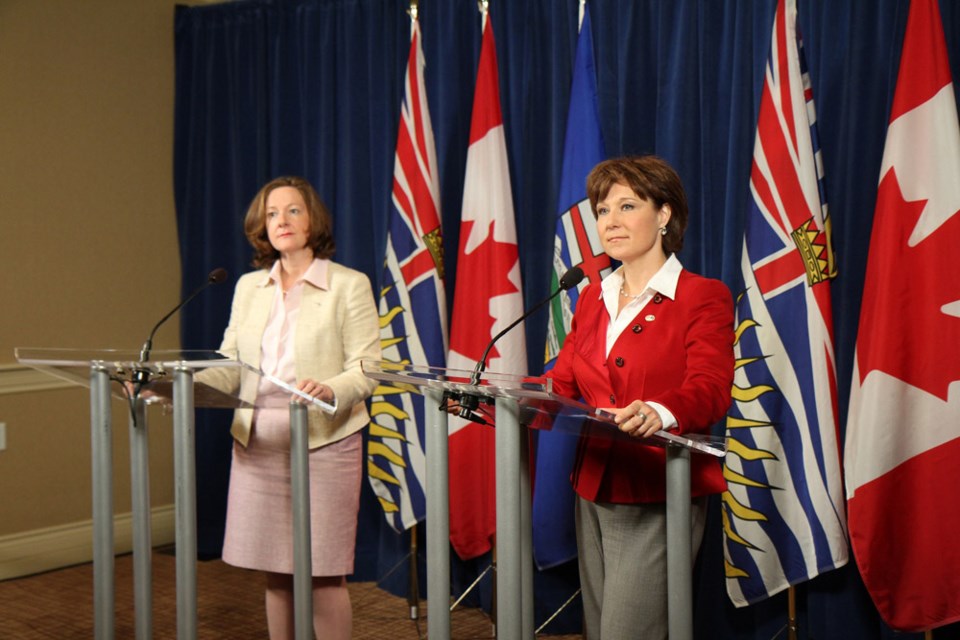Burnaby MP Kennedy Stewart thinks premier Christy Clark is making deals “on the fly,” when it comes to heavy oil projects in B.C.
Stewart, MP for Burnaby-Douglas, was commenting on the recent framework agreement between Clark and Alberta Premier Alison Redford.
“All this stuff seems to be happening on the fly without any consultation or input from the local communities that will be impacted,” he told the NOW.
Clark and Redford announced Tuesday that the two had reached a framework agreement, where Alberta would agree to support B.C.’s five conditions that must be met for heavy oil projects in the province. In return, the B.C. government, which wants a bigger share of the profits, agreed to not go after Alberta’s royalties.
B.C.’s five conditions for oil companies are that the environmental review process is met, that there are "world-class" oil spill prevention and cleanup measures in place for spills on land and water, legal requirements over aboriginal and treaty rights must be addressed, and B.C. must receive a fair share of the economic benefits to reflect the risk the province faces.
“How much money will it take to sway Christy Clark to put these pipelines through, and this is the question my constituents have been asking,” Stewart said.
Enbridge and Kinder Morgan are hoping to build pipelines from Alberta to B.C’s West Coast (and Kinder Morgan’s terminus is in Burnaby), but both need National Energy Board approval before proceeding. B.C. is already on record opposing Enbridge’s Northern Gateway project, as it currently stands, and this new framework doesn’t change that, according to Clark’s press secretary Sam Oliphant.
It’s the National Energy Board’s job to decide what pipeline or heavy oil projects can move forward, but Clark has the power to stop the projects, dead in their tracks, according to Stewart.
“Premier Clark has made this clear. She’s said she wouldn’t provide electricity, she’s said in previous interviews she would not provide land permits. … If the premier of province says ‘no pipeline,’ the federal government won’t push it through. She has a veto over both pipelines,” Stewart said.
Jonn Axsen, assistant professor with SFU’s school of resource and environmental management, doesn’t think the premier has the social licence to allow either pipeline project, even if her five conditions are met, and he also raised concerns about climate change and oil spills. Axsen conducted a nationwide survey on the issue and found B.C. residents were more likely to oppose a pipeline coming through the province.
“I think it’s pretty clear if there is any serious movement to go forward with the pipeline – whether it’s Northern Gateway or Kinder Morgan – there will be resistance for almost any action,” he said. “It’s very important for our policy makers to pay attention to the case where there’s a large chunk of the population who are quite concerned or against the pipeline. That suggests to me the protests are not going to go away; the resistance will be big and widespread and will not stop.”



